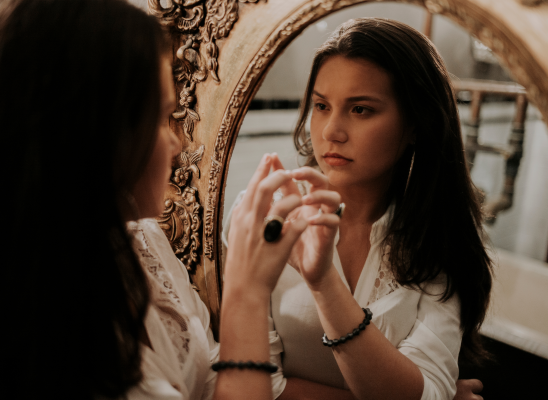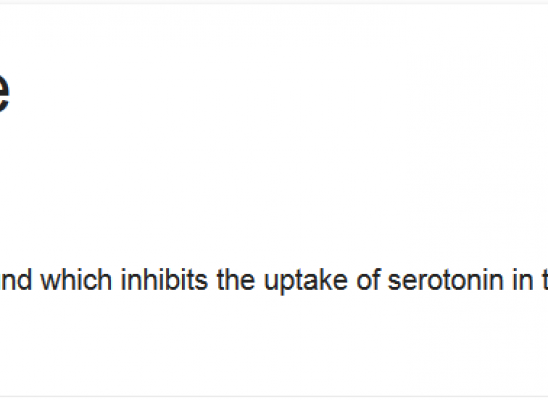How to talk to family or friends about your compulsive hair pulling disorder

Online test
Find out the severity of your symptoms with this free online test
Compulsive hair pulling is a stressful disorder often hid from family and friends. A cycle of negative emotions goes with the behavior including guilt, shame, and embarrassment. Many people who suffer from compulsive hair pulling prefer isolation, withdrawing from social interaction for fear of judgment. A person is left to deal with the disorder alone, internalizing negative emotions and often struggling with depression and anxiety.
Separate the behavior from the person
Internalized negative emotions wear down one’s self-esteem. Those who struggle with mental health disorders live a life centered around the “problem.” Eventually, they internalize to the point where they feel like they are the problem. It becomes a major part of their identity.
To speak to others about the problem, one needs to understand that the person is not the problem. The first place to begin is with language. Labels perpetuate stigma and stigma perpetuates negative feelings that get internalized and feed the cycle of negative emotions. Removing labels eliminates the problem of someone’s identity. The practice of person-first language is what it sounds like. The person comes first, not the disorder or the problem with which they struggle. For example, a person is not a hair puller. Instead, they struggle with a compulsion to pull hair. To say, “Charlotte is OCD” describes the person Charlotte only by a disorder she experiences. She is not what she experiences. Person-first language would refer to Charlotte as someone who has OCD. Many with compulsive hair pulling disorder already feel like there is something wrong with them, but separating the problem from the person begins the process of empowerment. Once someone speaks of themselves separately from the problem, it is easier to speak to others about the problem.
Support is available
It is a horrible experience to deal with depression, anxiety, overwhelming negative emotions and compulsive hair pulling alone. Support from others can be instrumental in helping someone maintain behavior changes. More importantly, a circle of supportive others is helpful for bearing the emotion burdens.
For those in therapy, a counselor can recommend support groups in your community. Online supportive communities like TrichStop can connect people with others who can provide support. When preparing to talk to family or friends about a disorder, it helps to hear the experiences of others. They can offer advice, support, encouragement, and tips for how to get through it.
What is your motivation for telling others?
What do you hope to accomplish by talking with others about the disorder? Evaluate your motivation. Have they asked questions? Do you need to explain behaviors? Are you looking for sympathy? Would you like to enlist their help and support?
People with a hair pulling disorder already deal with a lot of negative emotions and social isolation. This disorder is not well-understood, and people who do not understand tend to react in unexpected ways. Depending on who you tell, the consequences could be unpleasant and it helps to be prepared. However, it could also be a very positive experience. Enlisting the help of family and friends can aid in maintaining recovery.
When preparing to talk with others, consider the following questions:
- How well do I know the person I am telling?
- How much do they need to know?
- What reactions can I expect?
- What reactions do I not expect?
- How will I handle a negative reaction?
- What do I want from the person I am telling?
- How would I like them to help and/or support me?

Discussing these questions with a therapist or supportive others can help dispel anxiety about telling others, help with decisions about who to tell and what to talk about, and help consider all possible reactions and questions.
Practice
Once your motivation for talking with family or friends is clear, plan out what you want to say and practice role playing. Often done in therapy, role playing allows you to process feelings as they come up during the exercise. For those who do not have a therapist, practice with someone who can play the roles of a positive experience and a negative experience.
Self-care
Have a plan in place for self-care before and after talking with family or friends. It isn’t easy talking about mental health issues and the experience will be stressful regardless of the expected outcome.
Use an understanding support person
It is beneficial to talk to family and friends with a supportive person present. Some people find it helpful to have a therapist there to talk clinically about the disorder while you talk about what you experience. Whoever you choose, they are there for you. Inform them about what you expect them to do, how they can support you through the experience, what you plan to talk about and ways to intervene if necessary.
Treat yourself how you want others to treat you
When you talk with others, the way you speak about the disorder will be

the example. If you use person-first language, it will be easy to coach
others to use person-first language. If you project helplessness, they may respond in a way that furthers your feelings of helplessness.
If you project confidence that the disorder can be managed and give them ways they can support you, they are likely to feel confidence in you and be willing to support you.
Talking to family and friends about a compulsive hair pulling disorder can be a stressful experience. Learn to separate yourself from the disorder through person-first language, know your motivation for sharing, practice, plan for self-care, have someone there to support you, and treat yourself how you want others to treat you.
Online test
Find out the severity of your symptoms with this free online test
Start your journey with TrichStop
Take control of your life and find freedom from hair pulling through professional therapy and evidence-based behavioral techniques.
Start Now



